
The exploitation of animals in society and the food industry, in particular, is a problem most consumers don’t want to face or consider but a protest movement against the practice is growing larger every year thanks to hard-hitting documentaries like Myriam Alaux & Victor Schonfeld’s The Animals Film (1981), Shaun Monson’s Earthlings (2005), and Robert Keener’s Food, Inc. (2008) – all of which expose the mass production of animals for food. Tackling the same subject but taking a completely different approach to it is Gunda (2020) by Russian filmmaker Viktor Kossakovsky, which dispenses with voice over narration, a music score or any on-camera interviewees. Instead, it focuses a sow named Gunda and her piglets, a few chickens and some cows over a brief period on a farm before they become “products.” The concept may sound uninteresting and tedious but Gunda is not really a traditional documentary by any stretch of the imagination and the result is a completely engrossing, emotional drama with animals as its main characters.
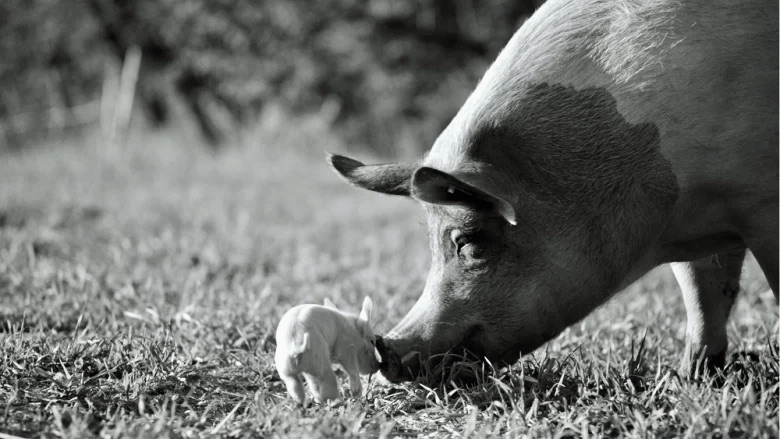
Some critics have stated that Gunda looks like what might have resulted if David Lynch directed a nature documentary and there are some favorable comparisons to the director’s earlier work like Eraserhead (1977) and The Elephant Man (1980) but only on the surface such as Kossakovsky’s preference for black and white cinematography and a multi-layered sound design that pulls you into an alternate barnyard universe. And some of the imagery is startling when first glimpsed such as an extreme close-up shot of a chicken foot entering the frame. At first it looks like a claw from some fifties horror film creature or it could be a three-pronged ginger root. The level of detail is astonishing and slowly but surely Kossakovsky establishes a sense of real intimacy between the viewer and his on-screen protagonists.
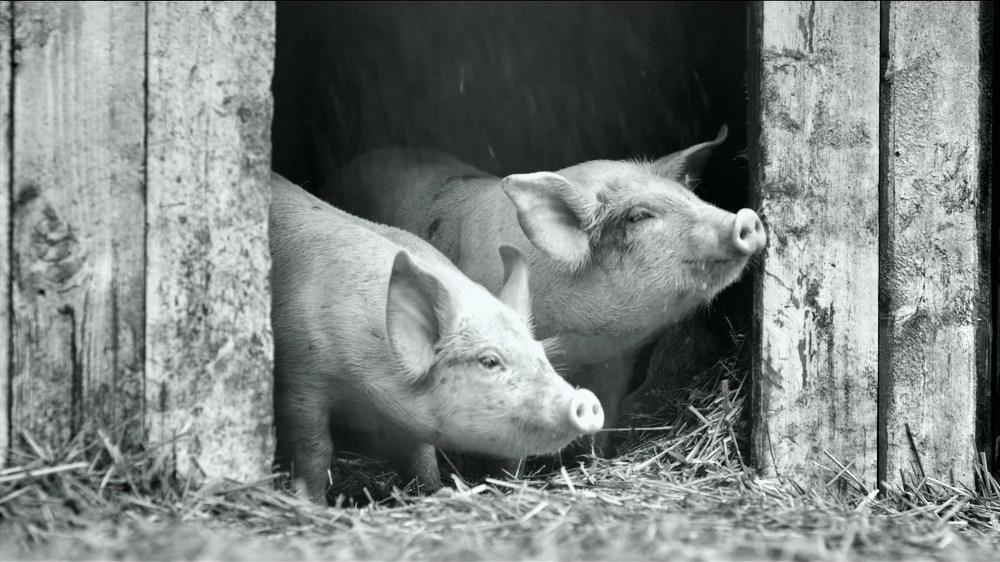
A story begins to emerge as well since we realize all of the pigs, chickens and cows are living on a commercial farm. Gunda opens with the sow giving birth to a large litter of piglets and we follow their rapid development over a few weeks as distinctive personalities emerge in each of them. We also witness chickens being allowed to leave their cages for the first time and tentatively explore their natural surroundings, including a one-legged chicken that is tracked via a Steadicam. A herd of cows also become part of the story as they gaze and interact with each other in ways that may surprise you, especially their technique for dealing with flies around their face.

Two cows stand side by side facing opposite directions as their tails act like windshield wipers, swatting away flies from each other’s eyes and nose. For an animal that is not considered highly intelligent by many, little moments like this show you another side of these familiar creatures and humanize them in the process. By the end of Gunda, when the fate of the sow and her babies is all too evident, the effect is as heart-wrenching as any real-life human tragedy.
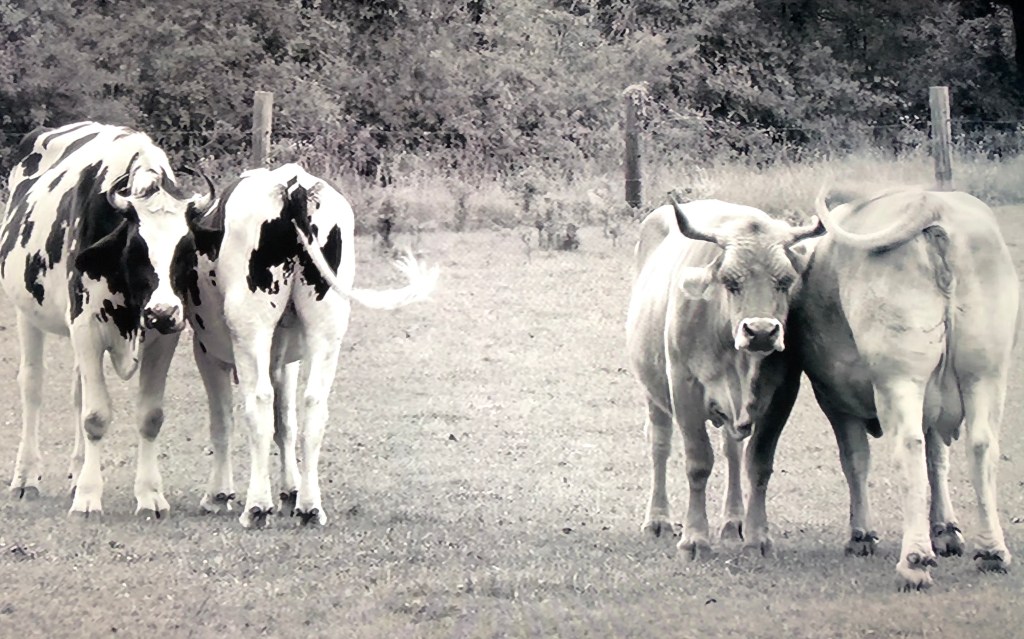
In case you are worried, however, about scenes of animal abuse or slaughter, Gunda avoids all of that although there are a few scenes to remind you that nature can be cruel as well. When one of the sow’s piglets has difficulty crawling out of a mound of hay, the mother steps on it and ignores its squealing. Is she killing it because she senses it is too weak to fend for itself? We don’t know. Nor do we learn the story behind the disheveled, sickly chicken that looks like it was savagely pecked by its coop mates. Perhaps Kossakovsky is showing us parallels to our own society and the kind of abhorrent human behavior that includes child abuse and bullying by one’s peers.
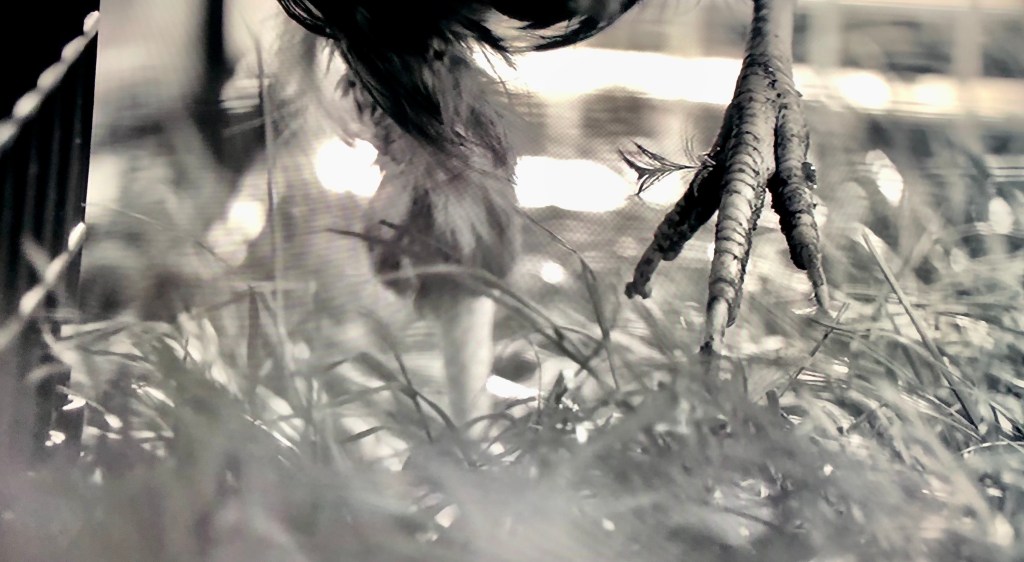
The animals in Gunda were filmed on what are generally considered free-range farms in Norway, Spain and the United Kingdom. Originally Kossakovsky planned to shoot the film in color with cameraman Egil Haskjold Larsen but they soon realized that black and white cinematography worked better for capturing their subjects’ personalities and emotions. The shooting schedule for Gunda was remarkably brief; most of the footage was shot in a week and then the small crew returned twice within a two-month period to capture the piglets over their final growing stage.

Kossakovsky has been making documentary shorts and features since the early 1990s but his major breakthrough film was Aquarela in 2018. Like Gunda, it was an equally immersive cinematic experience that told its story solely through images depicting the power of water in a world suffering from severe climate change. The director’s earlier work was more focused on people and communities like his award-winning debut documentary Belovy (1992), a portrait of a Russian peasant family, and Tishe! (2003), which depicts the changes that occur over a year’s time on a street in St. Petersburg, Russia.
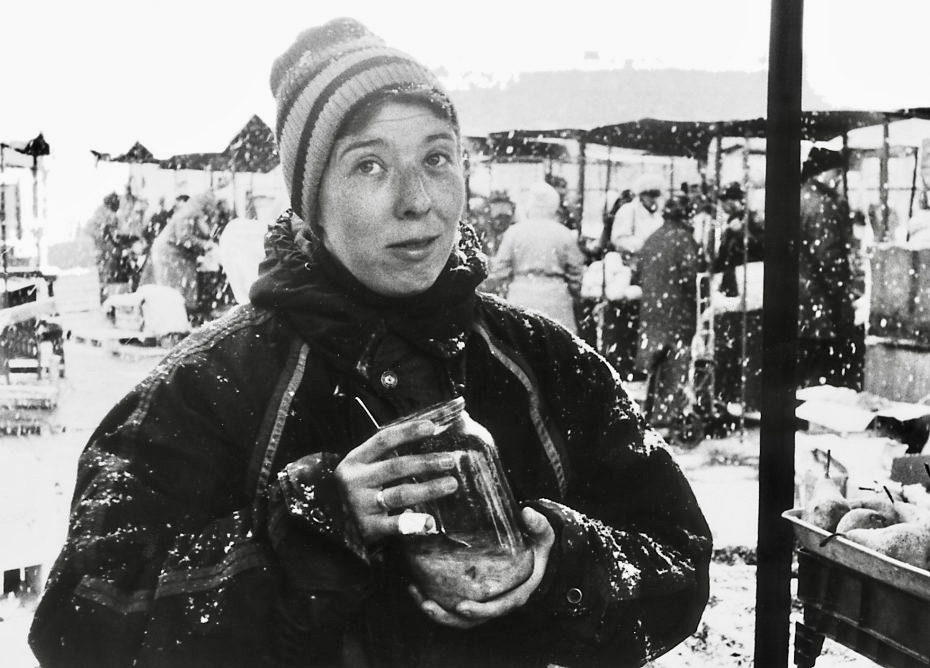
As you can imagine, getting a major producer and distributor interested in a film about barnyard animals was not an easy task. In an interview with Filmint.au, Kossakovsky said, “I was in the Berlinale in 1997 with Sreda. When I got a prize, people started asking me what I wanted to do. I said that I wanted to do a film about animals. No one paid any attention. For 20 years I was trying to convince people. When the producer Anita Rehoff Larsen agreed to make it, it was still very difficult. She took huge risks in the first place. We started filming without any support. Only after we did the first shooting, we got support from Norwegian Film Institute and Dutsch Film Institute, and then we started to make it bigger.”
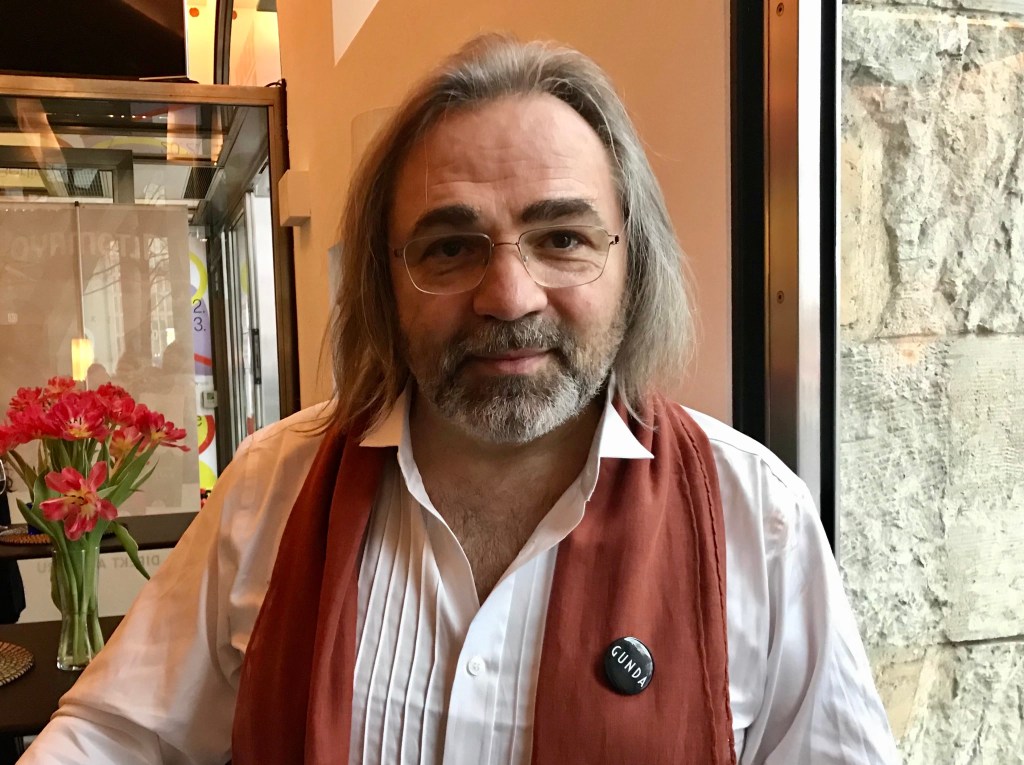
It is also interesting to note that Joaquin Phoenix is one of the executive producers of Gunda. Phoenix had previously narrated the 2005 documentary Earthlings about the animal farming industry and is a huge supporter of animal rights and a lifelong vegan since age 3. He even used the podium at the 2020 Oscar ceremony, where he won Best Actor for Joker, to address animal rights by saying that through film we can address the world’s injustices: “I think the greatest gift that it’s given me, and many of us in this room, is the opportunity to use our voice for the voiceless.”

Gunda has been playing the film festival circuit in the U.S. and is scheduled for a theatrical release by Neon in 2021.
Other links of interest:
https://www.idfa.nl/en/film/3fa304e5-30b0-40d9-97c9-59facf3d02ed/gunda
https://variety.com/2020/film/global/idfa-gunda-victor-kossakovsky-joaquin-phoenix-1234841729/
